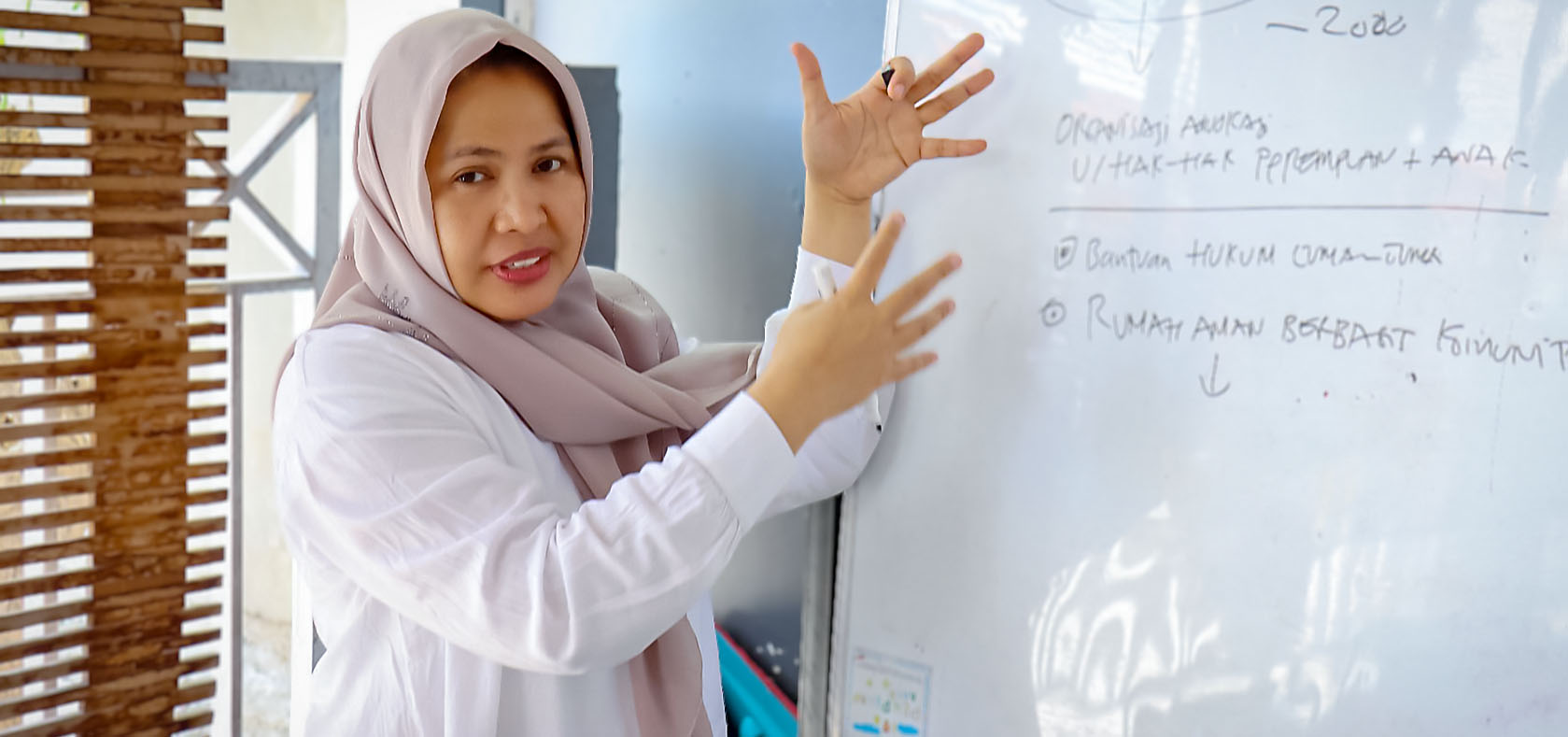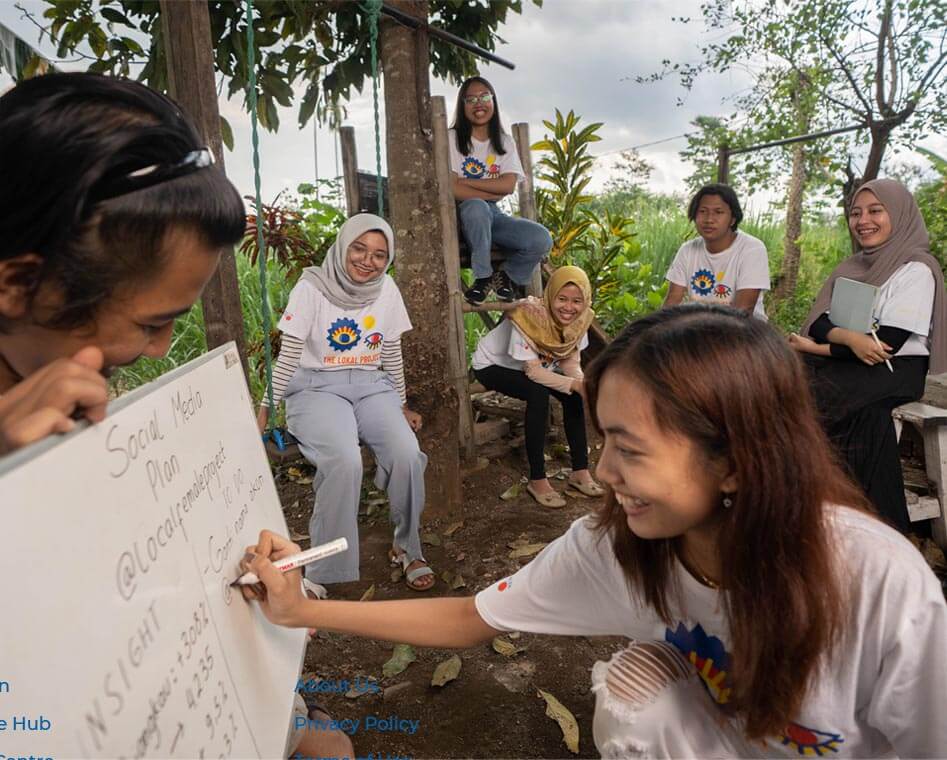Take five: “We need to strengthen women’s voices, leadership and access to decision-making in promoting peace”

Dewi Rana is director of Lingkar Belajar Untuk (Libu Perempuan), or Learning Circle Association for Women, a non-governmental organization that promotes women’s rights in Central Sulawesi province, Indonesia. The organization gathered members of civil society and government officials to draft the province’s action plan on preventing and countering violent extremism. That work has been supported by UN Women and its partner the Asian Muslim Action Network (AMAN) Indonesia.
Why is it important to put women at the center of preventing violent extremism and promoting peace in Central Sulawesi?
Women here have not only survived the disproportionate impacts of disasters and conflicts but also become influential leaders in emergencies and peacebuilding. However, women’s voices have been largely unheard in decision-making. We need to strengthen women’s voices, leadership and access to decision-making in promoting peace.
Meanwhile, during the COVID-19 pandemic, extremist groups have incited radicalism online and offline, including promoting early marriage for women. This provides a fertile ground for exacerbating gender inequality and violating women’s rights. It is essential to build a prevention mechanism against this.
How to ensure the regional action plan on preventing and countering violent extremism is gender-responsive?
The action plan and government regulation should leave no one behind. For example, when a terrorist attack occurs in the village, do we have a protection mechanism and space for pregnant women? We place understanding women’s specific needs as one of the key priorities of the action plan.
Ever since the drafting of the plan began, we have provided an open space for everyone and conducted several focused group discussions with non-governmental organizations from all areas, as well as minority groups such as indigenous communities.
What can we do to engage more women in efforts to prevent violent extremism?
One of our key strategies is to ensure increased access to information, networks, discussion groups, and training for women and girls to strengthen their capacity and knowledge in conflict prevention. Men tend to be the heads of the household with more access to community meetings and public information, while women receive little information due to their heavy domestic responsibilities. This regional action plan includes activities that will allow women to raise their voices and leadership in preventing violent extremism.
What are the challenges to increasing women’s participation?
The main challenge is to increase women’s knowledge, for example, understanding the definition of terms such as extremism and radicalism. Many women consider extremism far from their daily life. However, when we provide examples, such as sudden changes in their neighbors’ attitudes and behavior, they immediately understand that extremist ideas could form overnight with people they are close to.
How can we empower more women to become transformative peace agents at the local level?
In Central Sulawesi, there are many respectable women leaders in our history, and we have the concept of “Tina Ngata” (Village Mother) that originated in the 18th century. Tina Ngata is perceived by the Ngata Toro people (indigenous communities) as a strong woman leader and a life support force who protects their land. For example, Ratu (Queen) Hangkalea, a famous Tina Ngata, led the Ngata Toro people to resist the Dutch colonial government. By promoting stories of women leaders, we hope to encourage more women to become engaged in preventing social conflict and violent extremism.

